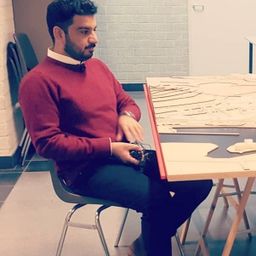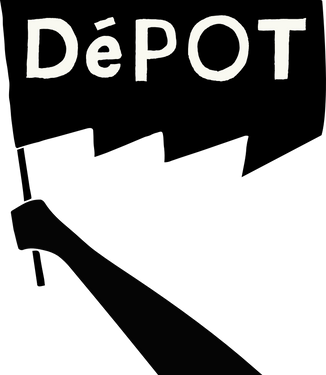
Naveed Iqal
With seven years of professional experience, Naveed specializes in the field of architecture and interior architecture (adaptive reuse). As an architect, he has mainly worked for medium to large-sized organizations in the architecture and construction sector. Throughout his career he has maintained a strong record in designing, executing, and reusing buildings of different scales, types, and functions, but it was the adaptive reuse discipline that attracted Naveed the most. Looking at the buildings pile of modern, old and ancient buildings adaptive reuse in the field of architecture is inevitable. This encouraged Naveed to pursue further studies, he applied for a scholarship through the Higher Education Commission HEC Pakistan and was selected in a systematic selection criterion for Master leading to Ph.D. program.
Naveed has a bachelor’s degree in architecture from the University of Engineering and Technology Peshawar Pakistan. A Master in “interior architecture adaptive re-use” with distinction from Hasselt university Belgium. He continued his research work as a Ph.D. scholar in the research group “Trace” at UHasselt Belgium on the topic of “Industrial heritage and its adaptive reuse potential in Pakistan” defining through international precedents the value of industrial heritage in urban regeneration.
The recent tide of industrial heritage and its reuse is quite unique for south Asian countries although it seems like a well-established strategy elsewhere in cities regeneration. Identification of industrial heritage and its reuse potential will be a new addition to the heritage arena of Pakistan as currently it is only focused on cultural and religious heritage.
Publications
"Adaptive reuse; Potentials and Compromises Between Demolition & Conservation with some Reflections from Pakistan". EAAE Conservation/Demolition workshop VII CTU Prague Czech Republic.
“Industrial sites adaptive reuse & regeneration potential in the metropolitan cities of Pakistan”. EAAE-ARCC international conference and VIBRArch Valencia Spain
“Re-reading the heritage legislations of Pakistan”. Heritage 2020 conference Portugal
“The Industrial Revolution and industrial heritage in the city of Karachi: A historical overview of the industrial revolution, related heritage, and its current state in the city of Karachi”. ICACHM 2021:23rd International Conference on Architectural Conservation and Heritage Management to be held in New York, USA
Documents
Sessions in which Naveed Iqal participates
Tuesday 30 August, 2022
Sessions in which Naveed Iqal attends
Sunday 28 August, 2022
You are invited to the McGill-Queen’s University Press book launch of “Deindustrializing Montreal: Entangled Histories of Race, Residence and Class” on Sunday August 28th (1-3pm) at Batiment 7’s
Join the conference organisers and TICCIH board members for a welcome cocktail and some festive words of introduction, in the former forge of the École technique de Montréal, founded in 1909, now part of the Université du Québec à Montréal campus.
Monday 29 August, 2022
This session is about the “hard facts” of conservation. It aims to draw together technical knowledge from related fields. Industrial conservation specialists rely on specialised knowledge and may sometimes not be aware that there is expertise and proven good or best practice in related fields. The transferring of knowledge from related engineering, construction preservation and architectural conservation specialists can serve the purpose of promoting and securing future preservation of ...
This session presents case studies and policy reviews that contribute to ongoing debate and international dialogue on the role of planning systems and conservation practices in addressing the challenges of citizen engagement—conserving local interests, place attachments alongside physical remnants of industrial heritage. Over the past half century, we have witnessed the development and changing focuses of urban planning and conservation discourses addressing industrial heritage. Relevant p...
Industrialization processes have been global from their very beginning. However, their interpretation still tends to be limited to specific locations or regions, and to specific time periods. Regularly, for example, it is stated that the industrial revolution started in Europe, from where it spread to the world, supposedly bringing technological and social progress to „less developed“ countries. Earlier periods of technology and knowledge transfer processes, that were already in place in t...
This roundtable will examine innovative and creative pedagogical approaches and partnerships that have created opportunities for experiential learning and community engagement, while enabling successful delivery of programs and courses in industrial heritage. In recent years and with the ongoing situation with the COVID-19 pandemic, undoubtedly online and distance teaching and learning are a top priority. The discussions will offer an analytical dialogue on digital learning strategies and ...
This session presents case studies and policy reviews that contribute to ongoing debate and international dialogue on the role of planning systems and conservation practices in addressing the challenges of citizen engagement—conserving local interests, place attachments alongside physical remnants of industrial heritage. Over the past half century, we have witnessed the development and changing focuses of urban planning and conservation discourses addressing industrial heritage. Relevant p...
This session is about the “hard facts” of conservation. It aims to draw together technical knowledge from related fields. Industrial conservation specialists rely on specialised knowledge and may sometimes not be aware that there is expertise and proven good or best practice in related fields. The transferring of knowledge from related engineering, construction preservation and architectural conservation specialists can serve the purpose of promoting and securing future preservation of ...
Industrialization processes have been global from their very beginning. However, their interpretation still tends to be limited to specific locations or regions, and to specific time periods. Regularly, for example, it is stated that the industrial revolution started in Europe, from where it spread to the world, supposedly bringing technological and social progress to „less developed“ countries. Earlier periods of technology and knowledge transfer processes, that were already in place in t...
Si la vallée du canal de Lachine a été le berceau de l’industrialisation canadienne, la géographie industrielle métropolitaine ne s’y est pas confinée, peu s’en faut, Outre les grandes concentrations d’entreprises des quartiers centraux, elle est constituée des réseaux infrastructuraux, d’une douzaine de centrales hydroélectriques et des ensembles manufacturiers disséminés dans une quinzaine de petites villes aujourd’hui intégrées dans l’aire métropolitaine. La conférence proposera un surv...
Tuesday 30 August, 2022
According to Rodney Harrison, “in the spirit of greater cross-disciplinary engagement, there is […] a pressing need to pay more attention to non-anglophone (and, indeed, non-Western) heritage literatures, histories and traditions” (2013: xiii), when we deal with critical approaches to heritage. This need is even greater when the scientific research focuses on countries such as Romania, Czechia, Bulgaria or Poland where Industrial Heritage, for example, is ignored and where the mechanism an...
Industrialization processes have been global from their very beginning. However, their interpretation still tends to be limited to specific locations or regions, and to specific time periods. Regularly, for example, it is stated that the industrial revolution started in Europe, from where it spread to the world, supposedly bringing technological and social progress to „less developed“ countries. Earlier periods of technology and knowledge transfer processes, that were already in place in t...
Drawing on case studies from diverse social, cultural, and political contexts the papers in this session discuss the different responses to maintaining and assessing not only the physical sustainability of industrial heritage but also the sustainability of its social values and meaning.
This session focuses on company towns from the perspective of urban planning. “Company towns” are here defined as single-enterprise planned communities, usually centered around a single industry, where a company commissions an urban plan, builds housing for its workers, and sets up recreational, commercial, institutional or community facilities. While these are now endangered by a second wave of deindustrialization, we observe that, aside studies or monographs of individual towns that popu...
Community lies at the heart of the processes of industrialization and de-industrialization. From labor to landscapes and from social fabric to ecological communities, scholars regularly examined the industrial community as core to industrial heritage. However, while social scientists have long studied industrial communities, only recently has there been a general consensus of respecting and working with communities themselves. Even so, working “with” a community on industrial heritage has ...
After 25 years of the launching of the first Latin American Industrial Heritage's organizations (México, Cuba, Argentina, Chile, Venezuela, Perú, Colombia, Brasil, Uruguay, Guatemala, Ecuador) we propose a general balance of the state of the art in the region and the future of the conservation and retooling of the industrial heritage in the covid19 aftermath. This regular session highlights four axes of discussion and comparative studies: 1) The legal framework of the policies of conservat...
Cette proposition de session focalise sur le patrimoine industriel colonial. A partir de trois cas, au Sénégal, au Tchad et à Taïwan, il s’agit de s’interroger sur les controverses et la possibilité d’utilisation du passé colonial. Le premier cas est le Sénégal, un pays d’Afrique de l’Ouest, dont l’industrialisation a été menée par la France afin de profiter des riches matières premières locales ; le deuxième est le Tchad, en Afrique centrale, et in...
Efforts to preserve industrial heritage occurs in a socio-economic and political context. But what is being preserved and for whom? And, relatedly, what is the relationship between industrial heritage sites and the deindustrialized working-class communities that often adjoin them? The keynote will consider the ways that the preservation of Montreal’s Lachine Canal, Canada’s premier industrial heritage site, has enabled gentrification processes that have forc...
Wednesday 31 August, 2022
Visit of the permanent exhibition : À cœur de jour, grandeurs et misères d'un quartier populaire, which traces the history of one of the oldest industrial and working-class neighborhoods in Montreal. Discovery of the old Généreux bathhouse, a building that recalls a time when most working-class dwellings had neither bath nor shower. Presentation of some elements of the neighborhood's heritage on the way between UQAM and the Écomusée.The visit will be guided in French by René Binette...
The Soulanges Canal is an infrastructure, located on the north shore of the St. Lawrence, which was opened to maritime traffic in 1900, succeeding the "old canal" of Beauharnois (established since 1843 on the north shore of the St. Lawrence). The Soulanges Canal was abandoned in 1959, when the current St. Lawrence Seaway linking the Great Lakes to the Atlantic opened.The Soulanges Canal was designed by the engineer Thomas Monro (1831-1903). Of Irish origin but trained in civil engin...
This tour offers an excursion on a privatized deck of Montreal's bateau-mouche; a playful guided tour that takes in some of the city's industrial landmarks from the St. Lawrence River.The tour is priced to cover additional costs; the fee includes access to the bateau-mouche, the tour and a drink.Departure will be on foot from the conference venue; boarding is at 3:45 p.m. at the l...
Thursday 1 September, 2022
From its construction to its restoration, immerse yourself in the now and then of this key Canadian industrial heritage site. A country’s central maritime route, a major inland port, the Canadian Lowell (using hydraulic power), the cradle of industrialization, Smokey Valley (using steam), a manufacturing hotspot, the Lachine Canal is all of this and more. For it is also a national historic site, for which
The use of industrial heritage is a profoundly important factor in the process of creating a sustainable economic, social, and political future for many communities occupying industrial heritage landscapes. More than ever we recognize the need for such communities to be capable of shaping and expressing their heritage in different forms in the context of current events and issues, and in doing so to inform both contemporary decision-making as well as the way their industrial heritage is re...
This lecture will argue that the landscapes of industrial heritage that can be found in different parts of the world are directly related to the place-specific trajectories of deindustrialization. In other words: the different ways in which deindustrialization impacts on local communities has a direct bearing on the emergence of forms of industrial heritage. I will differentialte between deindustrialization paths and related industrial heritage regimes in a) Anglo-...
The South Central district is a former industrial and working-class neighbourhood with a rich and unique heritage. The visit will allow us to discover, among other things, the Macdonald Tobacco factory and the Raymond candy factory, the old workers' housing typical of the district, and the reuse of old buildings for cultural and community purposes. The activity will start at the Frontenac metro station and will end with a visit to the Écomusée du fier monde. Staff will be avail...
Friday 2 September, 2022
Walkers will meet at the entrance (there is only one) of Lionel Groulx Metro and from there walk along the canal to the St-Gabriel Locks. This was once the most heavily industrialized area in Canada. It is now a zone of affluence between the hardscrabble, but now gentrifying, Point Saint-Charles, historically Irish and French, and Little Burgundy, one of Montreal's first multi-racial neighbourhoods. Several former factories were converted into condominiums in the...
In the refusal of people in communities abandoned by industrial capital to abandon their own places, we can read an implicit critique of the mobility and unaccountability of capital, raised by those who were once inside (however tenuously or uncomfortably) and now find themselves marginalized, “left behind.” The desire to catch up again, whether through attracting new investment or transvaluing abandoned sites as tourist attractions, makes this an essentially conservative critique that is ...
Come and share the good times of the congress and celebrate your scientific and professional discoveries in a former fruit jam factory, Usine C, built in 1913 and transformed at the end of the 1970s into a place for creation and dissemination.Discover Montreal's gastronomy thanks to an exceptional caterer. Learn about Montreal's musical heritage and the history of the industrial district that brought it to life. Then hear and experience Quebec's musical tradition as you are carried ...
Saturday 3 September, 2022
Uncover the vestiges of the Canadian Pacifie Railway tracks and the former Angus Shops, which played integral raies in the industrial and residential development of Rosemont. This tour wi/1 give you insight into the industrial past of the neighbourhood and its new life bath as a place to live and to work.A tour designed and guided by Heritage Montreal. Departure at the corner of Rachel and Dézéry streets, 10 minutes walk from Prefontaine metro station
















